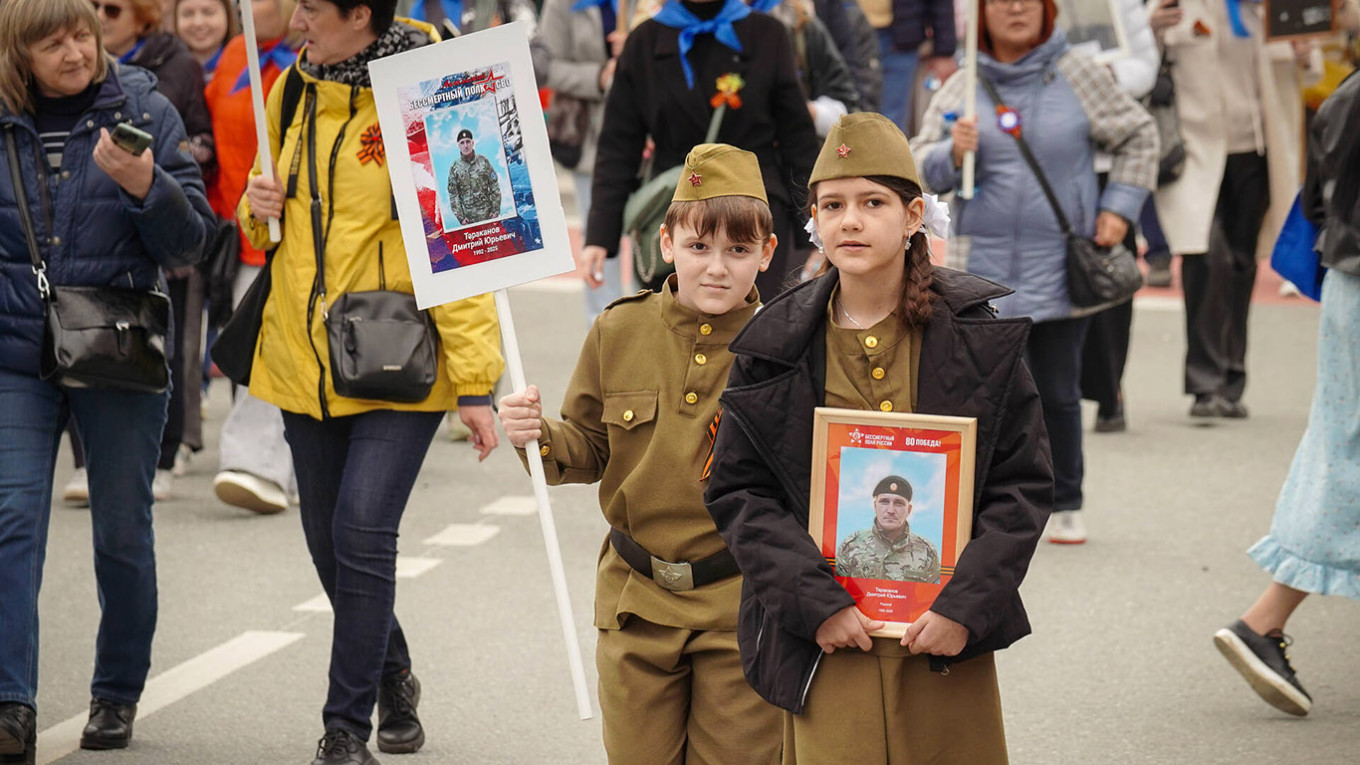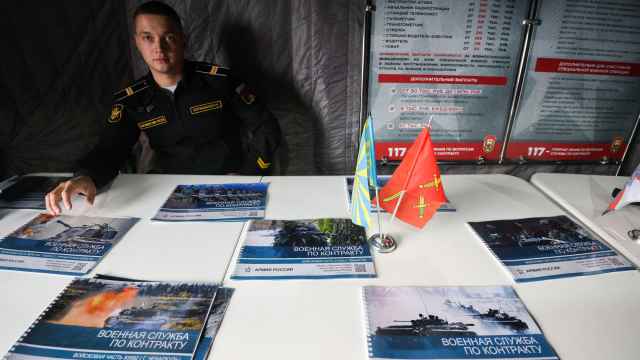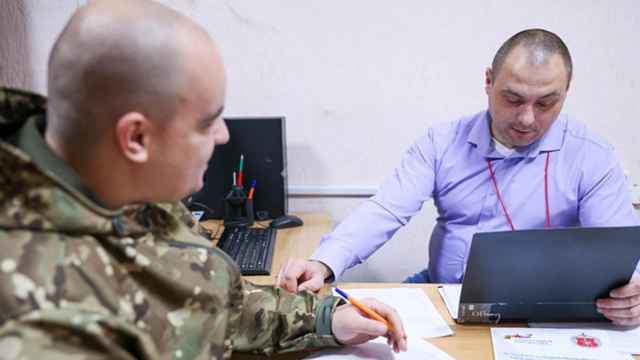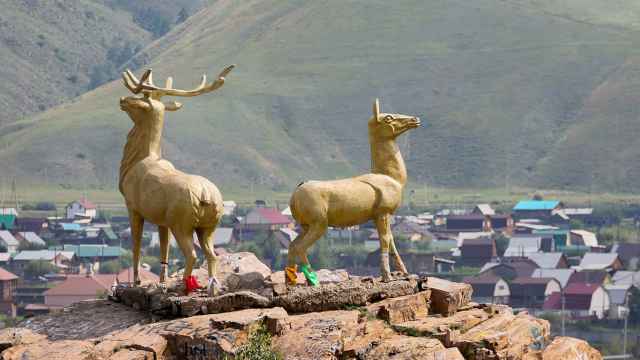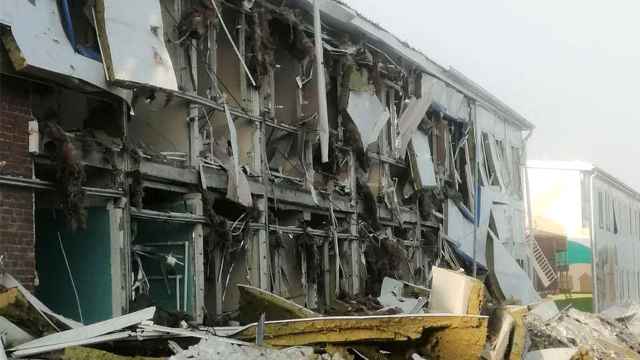Hello and welcome to Regions Calling, a new weekly newsletter from The Moscow Times helping you make sense of events and understand the key trends shaping life and politics beyond the Russian capital.
This week’s edition is brought to you by Leyla Latypova, MT’s Indigenous special correspondent covering politics and society in Russia’s regions and ethnic republics.
Subscribe here so you never miss an issue.
This week, Russia watchers have turned their focus toward Istanbul, where officials from Moscow and Kyiv are expected to meet for the first round of direct peace negotiations in three years (you can read MT’s analyses of the upcoming event here and here).
President Vladimir Putin proposed the talks in a televised address late on Saturday — a time when most residents of Russia were savoring the remainder of a long weekend break after grand commemorations marking the 80th anniversary of the Soviet victory in World War II.
Friday’s Victory Day celebrations across Russia’s regions already offered plenty of material for political and societal analysis. The timing of Putin’s proposal has seemingly added yet another layer of complexity.
Seven million Russians across 57 regions took part in Immortal Regiment processions on Friday, according to event organizers. St. Petersburg saw a record number of participants, with 1.2 million people marching down Nevsky Prospekt, followed by 200,000 in Chelyabinsk, 180,000 in Bashkortostan’s capital Ufa and 150,000 in Tatarstan’s Kazan.
The Immortal Regiment, which evolved from a grassroots movement to one of the Kremlin’s favorite propaganda devices, was established to allow descendants of World War II veterans to connect with their family roots by marching in the procession with a portrait of their deceased relatives on Victory Day.
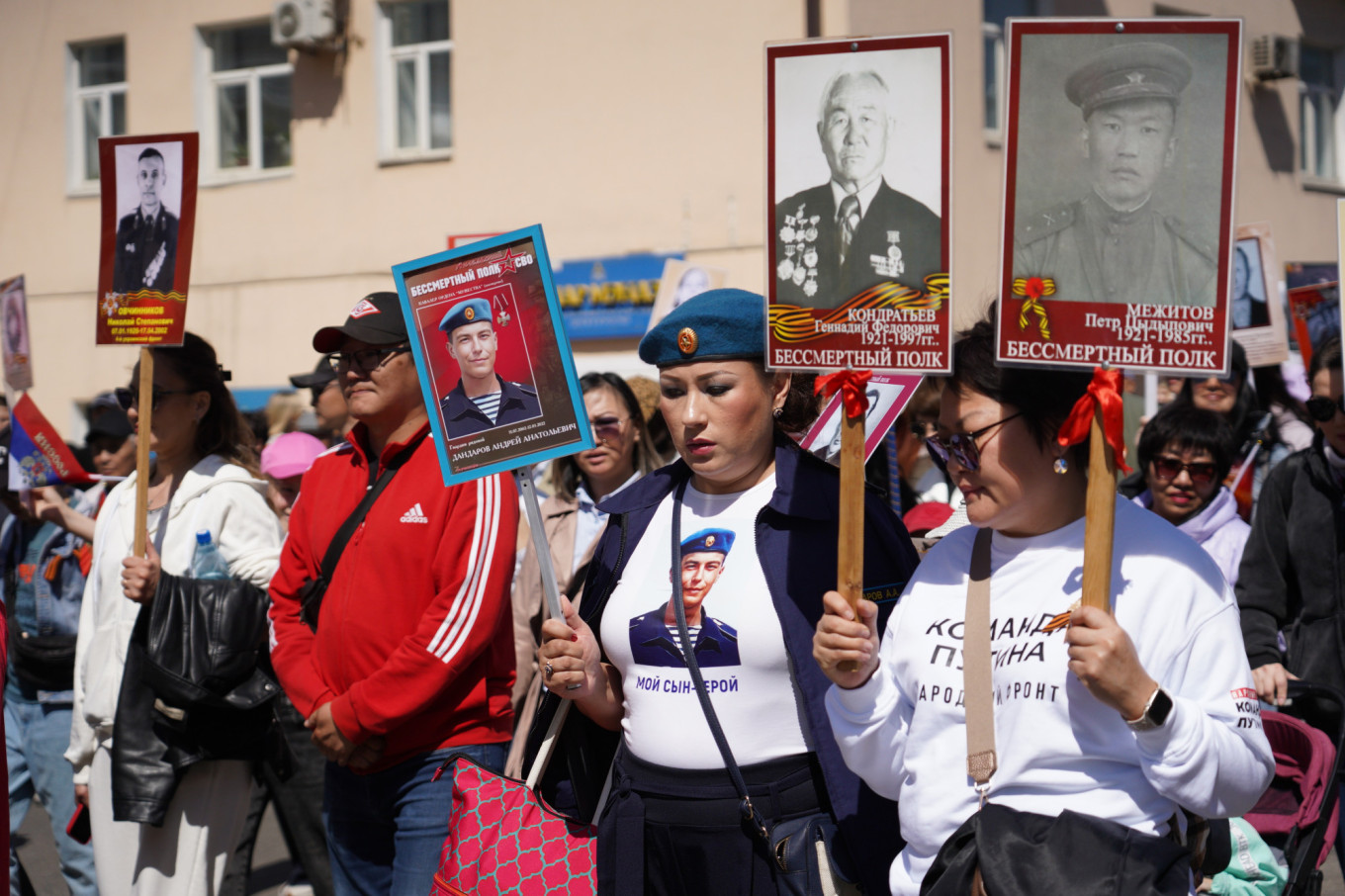
Held for the first time in three years, this year’s processions were a stark reflection of a country transformed by a war of aggression whose citizens seem utterly confused about the wider meaning of the sacrifices made by their relatives 80 years ago and in the present war.
This photo from Ulan-Ude, the capital of the Siberian republic of Buryatia where the Indigenous Buryat population has suffered outsized losses in the Ukraine war, perfectly encapsulates the mood.
The woman on the left — likely a Buryat — carries a photo of her son, killed in the first weeks of Russia’s invasion at the age of 21, and wears a shirt that reads “My son is a hero.” Her female companion, who sports a shirt with “Putin’s team” written on it, carries two photos of World War II veterans.
For the first time, officials this year encouraged relatives of Russian soldiers killed in the war in Ukraine to join the Immortal Regiment processions with photos of their loved ones.
Tatarstan, which ranks second among Russia’s regions in terms of total casualties, even inaugurated the construction of its first memorial complex for soldiers killed in Ukraine.
“It is symbolic that in this year of the anniversary of the Great Victory, we are holding a ceremony to install a memorial stone to the participants of the Special Military Operation, who today continue the work of their grandfathers and great-grandfathers with honor,” Tatarstan’s head Rustam Minnikhanov said during the ceremony to lay the memorial’s cornerstone.
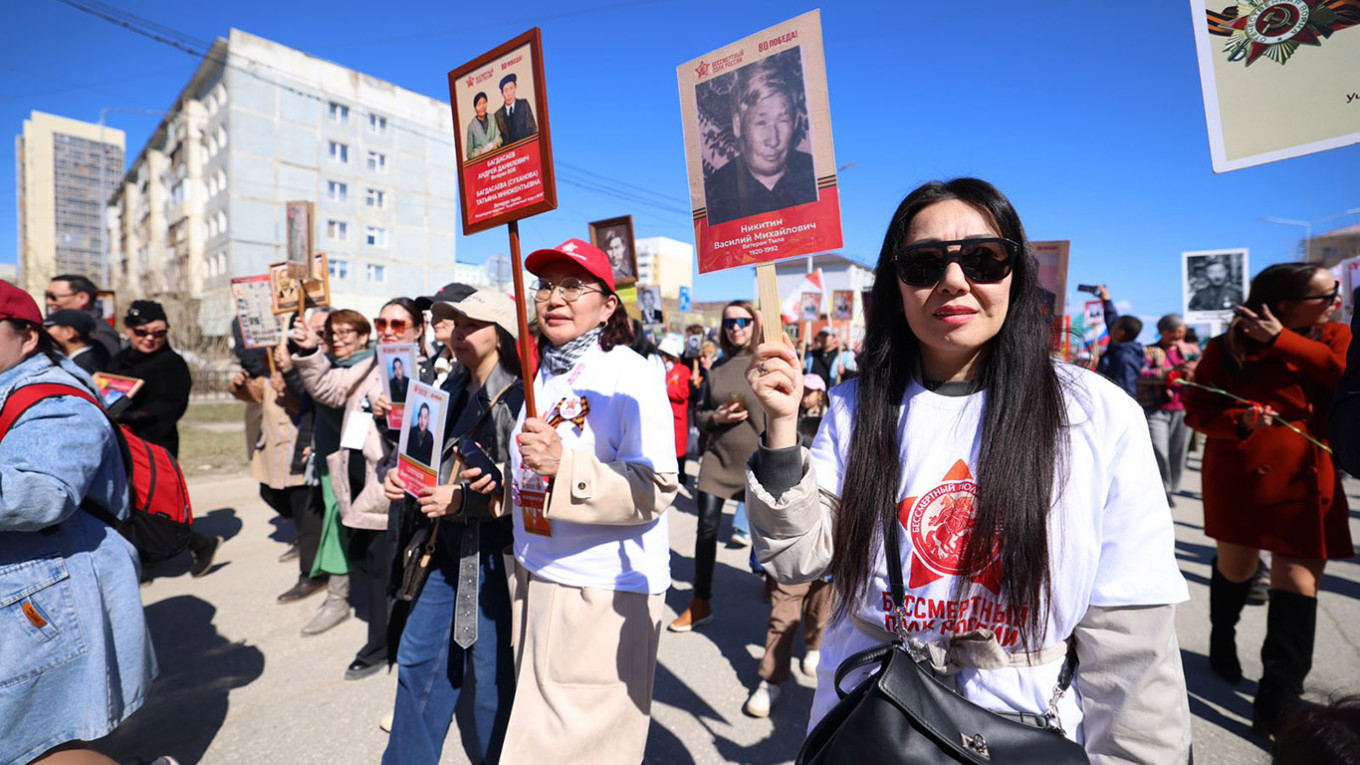
The possible wind-down of active combat in Ukraine will always come with a risk of instability in Russia’s ethnic republics, most of which sustained wartime losses far higher than those of the rest of the country.
As patriotic fervor wanes and plush military payments evaporate from bank accounts, more and more residents — especially Indigenous ones — could start questioning the true meaning of the sacrifices made by their loved ones.
Reimagined as the Kremlin-endorsed act of public mourning over the Ukraine war casualties, this year’s Immortal Regiment seemingly helps to delay those questions, providing an opportunity for mourners to let off steam and reinforcing myths of continuity between the two wars — just like in that photo from Ulan-Ude.
It is no coincidence that authorities in ethnic republics — especially in Sakha and Tatarstan — splurged on military parades and other accompanying celebrations while healthcare, educational and vital infrastructural projects in these areas suffer from underfunding.
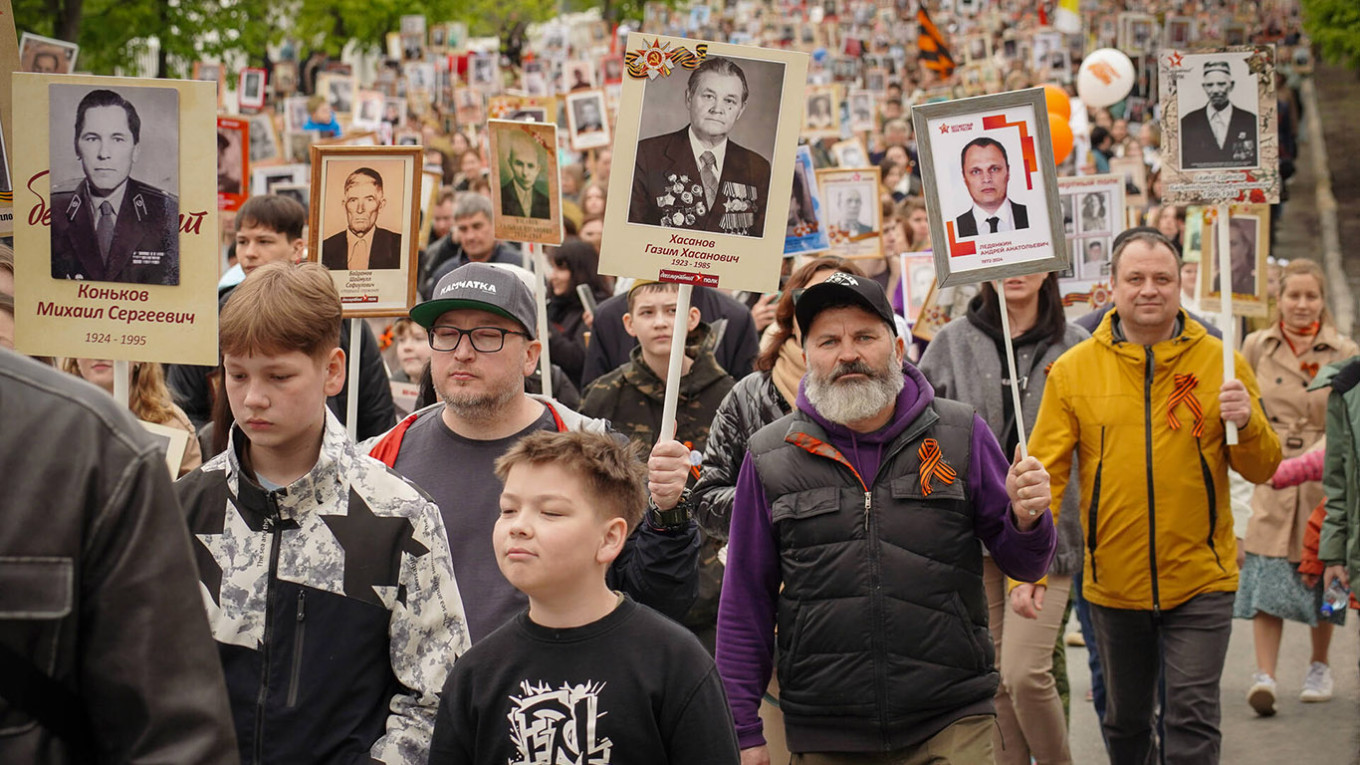
Whether following Moscow’s orders or their own hunch as to what will please the Kremlin, local officials bet that propaganda can effectively prolong the life of the regime in Moscow and, by extension, their own.
Mythmaking over Russia’s role in World War II, which long seemed a guaranteed source of loyalty to Putin’s regime, is showing its first cracks. Eight decades later, more and more people are questioning the treatment of the ethnic minority soldiers who fought in the Red Army and speak up about the mass repressions and forced deportations that went hand in hand with the Soviet victory.
But how long will it take for the regions’ silent majority to question Russia’s war in Ukraine?
A Message from The Moscow Times:
Dear readers,
We are facing unprecedented challenges. Russia's Prosecutor General's Office has designated The Moscow Times as an "undesirable" organization, criminalizing our work and putting our staff at risk of prosecution. This follows our earlier unjust labeling as a "foreign agent."
These actions are direct attempts to silence independent journalism in Russia. The authorities claim our work "discredits the decisions of the Russian leadership." We see things differently: we strive to provide accurate, unbiased reporting on Russia.
We, the journalists of The Moscow Times, refuse to be silenced. But to continue our work, we need your help.
Your support, no matter how small, makes a world of difference. If you can, please support us monthly starting from just $2. It's quick to set up, and every contribution makes a significant impact.
By supporting The Moscow Times, you're defending open, independent journalism in the face of repression. Thank you for standing with us.
Remind me later.



